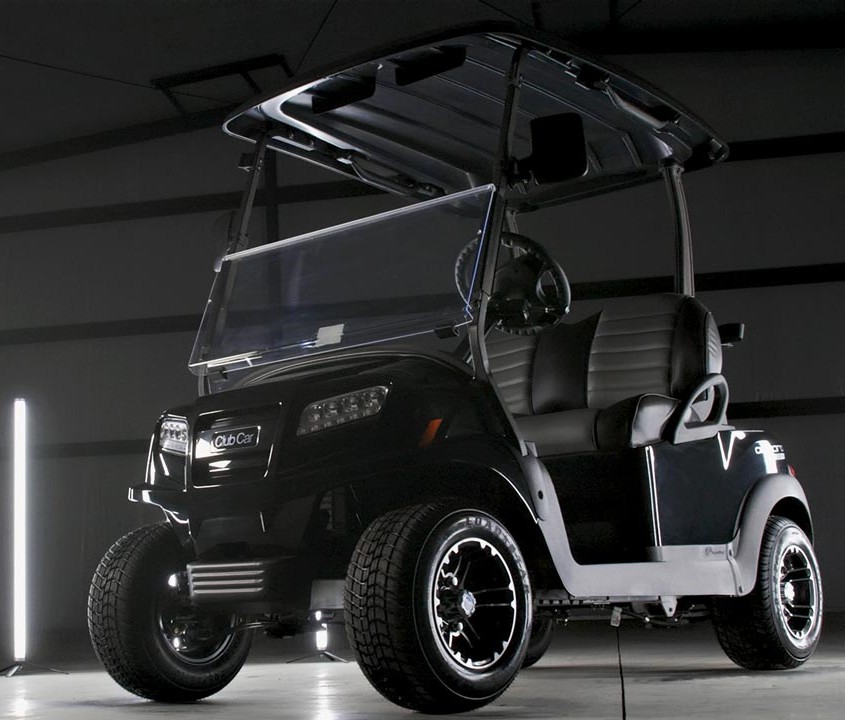How far can a 48V golf cart go and other batter system? It depends on the type of battery system used. A four x 12V battery system is usually good for approximately 40 miles (64 kilometers) on one charge. A six x 8V battery system has a capacity of 1,020 amps. An eight x 6V battery system is even better, with a maximum travel distance of 25 miles and a maximum run time of 20 MPH.
40-45 miles (64-72 km) on a single charge
The battery of your golf cart can be recharged using the same methods used for household appliances. A 48V 120 Ah battery can provide 40-45 miles (64-72 km) of range on a single charge. A 48V 180 Ah battery provides 68-75 miles (104-122 km) of range. 48V 240 Ah batteries deliver 80-85 miles (124-156 km) of range.
A lithium battery has several advantages. Its low weight and short recharge time make it ideal for heavy duty use. This type of battery is also very efficient at accepting charge from regenerative braking, where braking energy is dissipated into heat. Lithium golf cart batteries have the advantage of lasting longer than lead-acid batteries. Lithium batteries have higher prices than lead-acid batteries, but they will save you money in the long run.
If you want to increase the range of your golf cart, invest in a 48V lithium golf cart battery. A 48V lithium battery lasts 40-45 miles (64-72 km) on a single charge. You can buy several packs of lithium batteries to increase the range of your cart. However, you should check the specifications of the batteries before buying.
A 48-volt golf cart can travel 40-45 miles (64-72 km). However, the batteries should be charged at least once a week, so you should always charge them as often as possible. For example, if you charge two batteries at once, you can get a 48-volt cart to go 40-45 miles (64-72 km) on a single charge.
The 48-volt golf cart has some advantages over the 36-volt model. Its motor provides more torque and power than its 36-volt counterpart. It also has faster acceleration and same-to-higher overall speed. The higher voltage of 48-volt golf carts is recommended for those who frequently play golf on uneven terrain. So, if you’re looking for a better electric golf cart, go for the 48-volt model!
Adding weight to a golf cart reduces its range
Adding weight to a 48V golf cart will reduce its range but it will not negatively affect the driving distance. The 48V battery bank uses a small number of high quality batteries and has been thoroughly tested in real world driving conditions. This is the cheapest golf cart battery configuration but the lowest range of any cart. The higher quality battery packs will last longer and provide greater performance, such as range.
To extend the battery range of an electric golf cart, consider purchasing a battery pack that has an additional power source. The average battery life of an electric golf cart is between 20 and 40 miles, which is approximately three or four round trips around the golf course. The battery range of a 48v golf cart depends on the speed of the cart. Manufacturers often design carts that have a higher speed capacity than the typical golf course speed of 12 to 15 mph, reducing its range.
A 48V golf cart can be converted into a hunting buggie if you add additional weight. The batteries are cheaper to replace, and stock motors and controllers are still widely available. But 48V carts are more expensive than 36V carts, so you should not add too many weight to your cart. Adding weight to a 48V cart will reduce its range by about 30%.
While a 48V cart can go up to 70 miles on a single charge, adding weight to it will significantly decrease its range. This is the reason why lithium golf carts tend to have lower range. It is a common misconception that lithium batteries are better for a golf cart than traditional deep cycle battery machines. Adding weight will decrease the range and the speed. There are several methods of increasing the battery range.
The four-passenger gas-powered 48-volt cart has six eight-volt batteries onboard. One model with a single lithium-ion battery weighs only 330 pounds. The same cart with a 48-volt lithium-ion battery installed will be heavier than the same model with gas engines. A four-passenger 72-volt electric cart will weigh more than a thousand pounds with lithium-ion batteries.
Increasing the battery weight of a 48V golf cart will decrease the range considerably. The weight of a lithium-ion battery is about one-fourth of a traditional lead-acid battery. The weight of a lithium-ion battery is approximately 50 to 70 pounds. This is a significant weight savings when compared to traditional lead-acid batteries. A lithium-ion battery will also extend the life of your cart by five to 10 times. The only downside to lithium-ion batteries is their higher price.
Using a lithium battery extends its runtime
Compared to traditional lead-acid batteries, lithium golf cart batteries are able to retain more energy for longer periods of time. Lithium golf cart batteries also don’t need to be refilled with water and will not lose voltage if they are dying or discharged. The cost of a lithium battery is higher than a lead-acid battery, but the benefits far outweigh the initial cost.
Using a lithium battery can extend the runtime of your golf cart by as much as 30 miles. A standard lead-acid battery setup includes six 8V and four 12V batteries that each provide fifteen to twenty-five miles of runtime. Lithium golf cart batteries, on the other hand, allow you to install any number of batteries for optimal runtime and power. In addition to providing more power, lithium batteries are lighter than their lead-acid counterparts and offer the added benefit of reducing the overall weight of the vehicle.
The main advantage of lithium batteries is that they provide maximum power. Typical golf cart batteries weigh about 300 pounds. However, using a lithium battery will make your cart lighter by approximately 70 pounds. Lithium batteries will help extend the runtime of your 48v golf cart. However, the additional weight can affect the speed. Therefore, it’s imperative to consider the battery size and capacity before purchasing a lithium battery.
Lithium batteries are the best choice for golf carts that are powered by a 48V battery system. They can be recharged for a minimum of two hours and are capable of sustaining a full charge for up to five hours. Lithium batteries also allow the golf cart owner to use them as spares without harming them. This extends the cart’s runtime while providing extra power for longer rides.
In addition to longer runtime, lithium batteries also require less charging than lead-acid batteries. Compared to lead-acid batteries, lithium batteries are safer. The weight of lithium golf carts is half that of lead-acid batteries. The weight of the battery makes it easier to maneuver on slippery surfaces. Lithium golf cart batteries also offer increased energy density than lead-acid batteries, which is beneficial for the cart’s performance.
Standard 12-volt car batteries will work in tandem with a 48v lithium battery for your golf cart. Because car batteries have low discharge rates, they’re not designed for sustained use and should not be used as the primary source of power in a golf cart. However, lithium-ion batteries do not have the same limitations as their counterparts, so they’re an ideal choice for extending the runtime of 48v golf carts.


